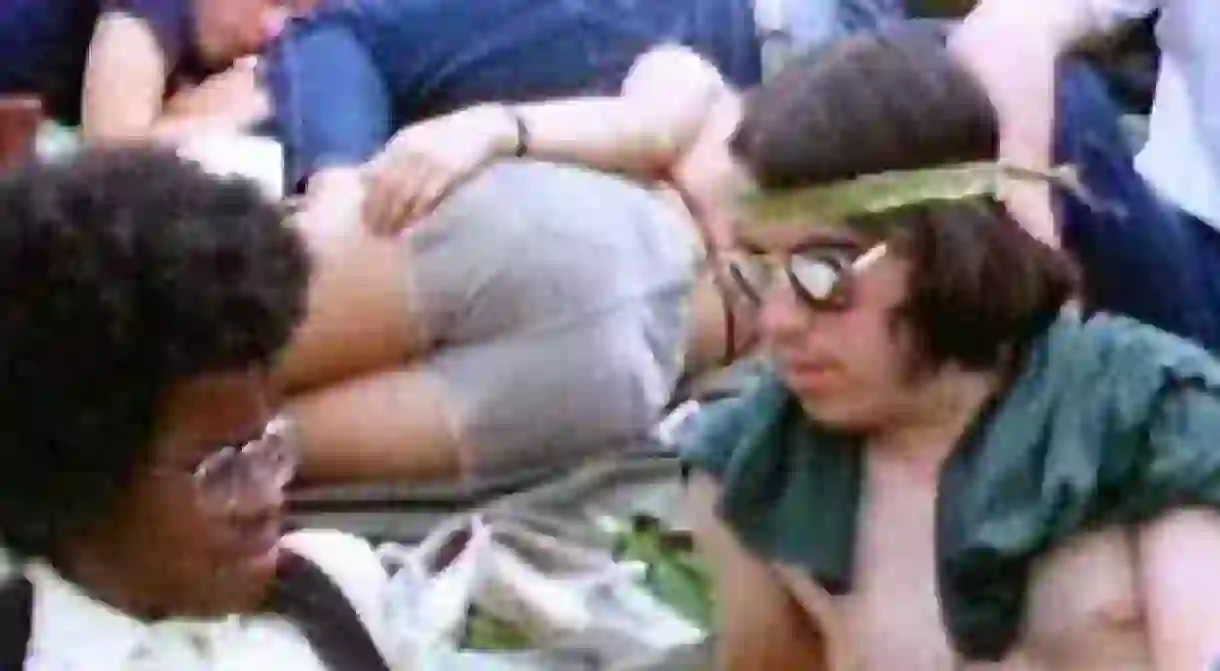Why the Hippie Movement Declined

Ah, the ‘Summer of Love’—a time when disaffected youths from all over the country gathered at Haight-Ashbury in San Francisco back in 1967, ostensibly to celebrate ‘peace’ and ‘free love.’ What a great, idealistic time it must have been…or was it?
After the ‘Summer of Love,’ this counter culture suffered many setbacks. We look at five reasons why the hippie movement declined.

Drug Addiction and Crime
Achieving a higher level of consciousness via drugs was a central tenet of the hippie movement. But the abundant availability of drugs resulted in overdosing and crime—in fact, by the fall of 1967 there was a considerable number of drug-induced rapes and violent crimes. By the end of that year, Haight-Ashbury was full of burnouts and homeless people, and many of the kids who came in search of ‘free love’ returned home sick and penniless.

The Destruction of the Hippie Capital
The de facto capital of the hippies, San Francisco’s Haight-Ashbury, was in ruins by the end of 1967. The influx of people into the district during the ‘Summer of Love’ was so high (pardon the pun) that overpopulation and unsanitary habits resulted in the spread of disease as well. Ultimately abandoned and trashed, the hippie hub was destroyed. With most of its citizens gone, it was unable to continue as the epicenter of the movement.

The Manson and Altamont Murders
The hippie movement’s image suffered further damage after the heinous Manson murders. In 1969, at the behest of Charles Manson, actress Sharon Tate was brutally murdered by Manson’s ‘family’ members.
Another counter culture tragedy happened at the 1970 Altamont Music Festival, when the Hells Angels (who were hired as security for the festival) needlessly killed a teenager while the Rolling Stones performed on stage. Combined, these events presented a warped image of the hippies in the eyes of common folk.

The End of the Vietnam War
The Vietnam War (1959-1975) was a major issue that the hippies vehemently opposed. But by the 1970s, the war was gradually winding down, and finally by 1975 (when the war ended) one of the core factors for their raison d’être was gone. Protesting the war was a mutual goal that held the movement together, but when it ended members started to dissipate.

They Just Grew Up
After momentarily dabbling with hippie ideals, those who survived the movement matured and headed in pursuit of ‘normal’ vocations. By the early 1970s, many came to realize that the optimistic idealism of the counter culture —no matter how noble—was not practical, and moved onto jobs in the ‘real’ world.













